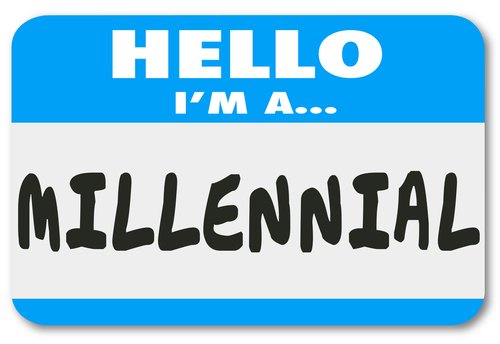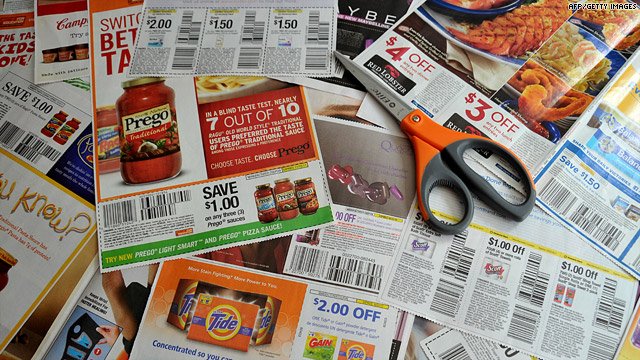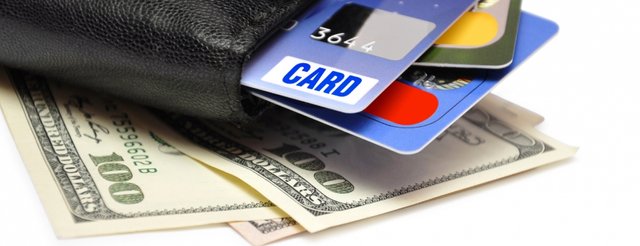Millennial Spending Habits and Trends

Source
It’s official. Millennials are now the biggest generation in American history. Over 83 million people were born between 1982 and 2000. That number surpasses both Baby Boomers and Generation X.
Millennials are especially noteworthy because they are the first digital natives— they are the first generation to grow up using technology like the Internet and mobile devices. They use social media more than any other generation. Millennial reliance on technology, particularly social media, is quickly reshaping our economy and changing the way that brands connect with younger consumers.
Less Money and More Debt

Source
Despite being the most educated generation in American history, millennials are actually making less money than previous generations. Unfortunately, their lower incomes have been met with higher living expenses, especially for housing in larger cities. As a result, a disconcerting amount of millennial income is earmarked for the bare essentials, which unfortunately now include unprecedented levels of student loan debt. At this rate, an article about how the most recent class of college graduates is the “Most Indebted Yet” will continue to be written every year.
It’s no surprise that millennials have no choice but to limit spending on travel, clothes, entertainment, and eating out. The consequences on the overall economy of having so many people with so little to spend is eye-opening.
 )
)Source
What was once considered extreme money saving, like coupon clipping and bulk warehouse purchases, isn’t so extreme anymore. Frugality is engrained in millennial culture. Stories about millennials with high paying jobs choosing to live in a van outside their office are no longer hard to believe. The truth is, millennials are incredibly careful, innovative, and educated when it comes to spending money. This isn’t so puzzling once you realize that entering into adulthood and graduating into the worst economic downturn since the Great Depression has a lasting impact. The Great Recession has created a generation with similar values of those that grew up during the Great Depression.

Source
These values have brought on the rise of the sharing economy. The sharing economy is the concept of buying access, not ownership. Just because millennials have been reluctant to buy cars, homes, and other goods, doesn’t mean they haven’t been buying access to them. Millennials have shown that they are willing to pay to avoid the cost and burden of ownership. Concepts like ride-sharing are a perfect example. Car ownership won’t become obsolete overnight, but more than half of millennials have used ride-sharing services and the demand is growing. Fewer millennials are getting drivers licenses than ever before, presumably because they haven’t found a compelling reason to buy a car.
Millennial Purchases
The only thing more important than the “what” is the “how.” As the first digital natives, millennials spend their money after a lot of research and price checking online. Virtually every product is offered online and millennials prefer to compare prices and share reviews before making an in-store purchase. Polls show that almost half of all millennials use text messaging and social media to communicate with others about a product or brand before making a decision.
Cash, Debit, or Credit?

A BankRate survey found that 63 percent of people age 18 to 29 don’t have a credit card. Only 23 percent have one, 6 percent have two, and a mere 2 percent have three. This is much lower than older generations.
Over the coming years, as millennials presumably seek mortgages and loans to purchase big-ticket items, many will lack the necessary credit history to secure those loans. For many, low-interest offers will be out of reach. This will end up costing millennials more money in interest costs over time, not to mention the need to put-up more money upfront. It will also deny them the negotiating power that comes with a lengthy credit history, negatively affecting their ability to get higher credit lines.
The Takeaway
As the largest generation in the United States, millennials have changed the way that businesses engage with consumers, and permanently altered the economy. Are millennials’ habits a passing “fad,” and will they start purchasing homes soon or is this the new reality of the 21st century?
Nice post...i am one of those millenials, i have 0 credit cards, dont own a house or car..lol, but im also poor as hell
Very nice article. ## upvoted
You have some great points. Especially about the less money more debt. I talk about these and the other points you make as well.
I have written an article about millennials that goes against the normal type of articles that are out there.
Would love to get your thoughts on it.
Millennials as Entrepreneurs
Thanks you rock.